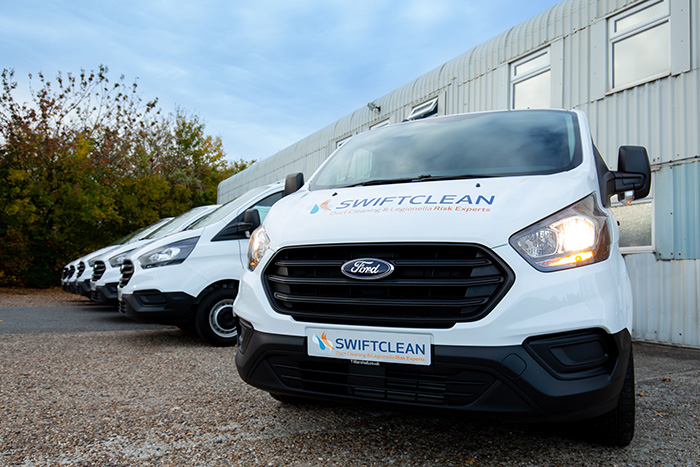Air And Water Services – The Complete Package

Football stadiums provide a lot of air and water compliance issues to consider. Buying air and water services as a package can be time and cost effective, as Gary Nicholls, MD of ductwork hygiene and legionella risk experts Swiftclean, explains.

Toilets, showers and changing rooms, as well as laundry and catering facilities, all have water systems which must be kept Legionella free. The off season presents particular challenges, as the risk of Legionella increases when water is allowed to sit in the system for any length of time. Water systems must be regularly flushed and the water tested and monitored in accordance with the Approved Code of Practice L8, issued by the HSE.
There are also a variety of catering outlets within a stadium, from fast food to fine dining. All of these will have kitchen extract systems which must be regularly cleaned, to prevent grease build up. This is a serious fire prevention measure as well as a food hygiene requirement. Grease should be removed by a competent specialist cleaner in accordance with TR19® Grease, a specification issued by the BESA (Building Engineering Services Association.)
Clean ventilation systems are key to good indoor air quality, which is essential for the wellbeing of players, staff and fans in the various areas of the stadium. Ventilation systems should be compliant with TR19® Air, also issued by the BESA.

For ventilation services, you should ensure that your specialist provider is a member of the BESA Vent Hygiene Register. For water services, your provider should be a member of the Legionella Control Association (LCA). Choosing providers who are members of these bodies means that much of the due diligence in appointing a provider has been done for you, as members are regularly vetted.
The technicians who carry out your kitchen extract clean should hold the BESA Grease Hygiene Operative or Technician qualification. Likewise, ventilation system technicians should hold the BESA Air Hygiene Operative or Technician qualification.

A specialist provider will provide post‑service verification reports, which form robust evidence of compliance, including before and after photographic records of cleaning and testing. With a single provider, you will receive reports for each service in a similar, easy to understand format.
This would probably be available from a single portal where you can easily track and update your non‑conformances in one place. At the very least, using a specialist provider helps you to demonstrate your active efforts to comply with legal requirements, even if full compliance was not physically possible.
There is nothing wrong with shopping around for services, as long as the providers are competent and have LCA or Vent Hygiene Register membership. However, buying a package of services can undoubtedly save you time, resources and money, as well as giving you some much needed peace of mind.

Click the article to enlarge it.












































